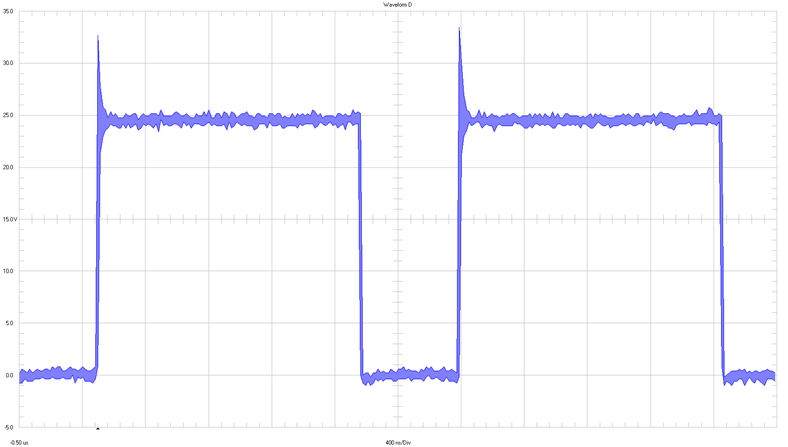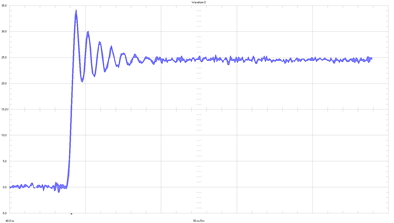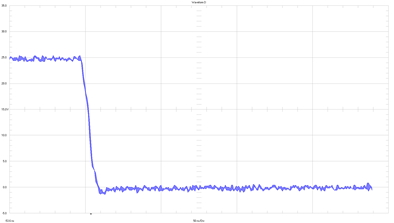TIDT316 December 2022
- Description
- Features
- Applications
- 1Test Prerequisites
- 2Testing and Results
- 3Waveforms
- A Output Ripple Reduction, Output Current Capability, and Dithering Option
3.1.1.3 18-V Input Voltage

|
5 V / div 400 ns / div Full bandwidth |
|

|

|
5 V / div 250 ns full scale Full bandwidth |
Figure 3-3 Switch Node (TP2 to GND), 18-V Input Voltage